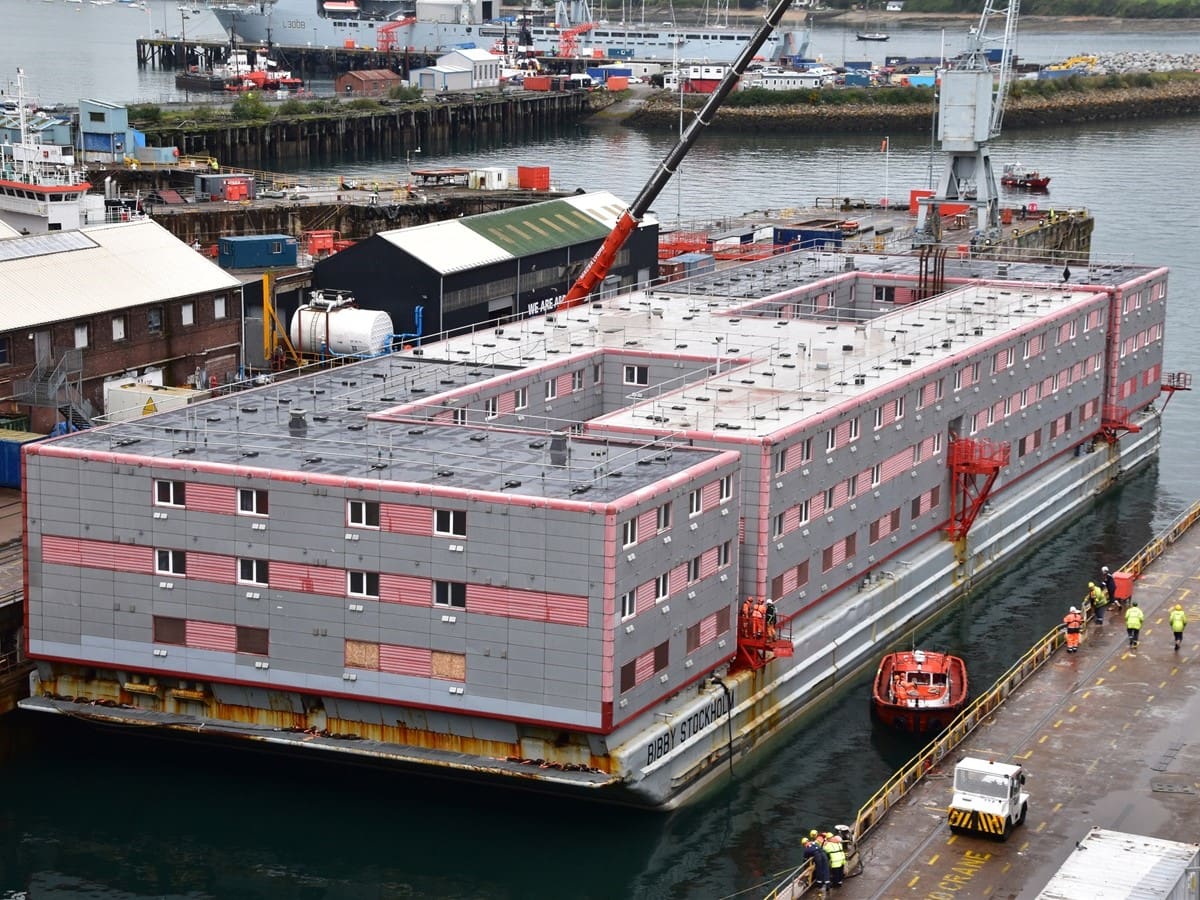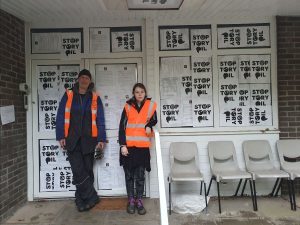A local resident is back in court over the Bibby Stockholm – trying to get the barge shut down, while putting the racist government policy that created it in the spotlight.
On 27-29 February, the High Court will hear the case of Parkes v Dorset council to determine whether Dorset council has the power to enforce planning authority over the Bibby Stockholm barge.
The Bibby Stockholm: in the judicial spotlight
Carralyn Parkes, a local resident and the mayor of Portland, has brought this claim in her personal capacity. She previously took the Home Office to the High Court over the Bibby Stockholm. As the Canary reported, Parkes argued that the Home Office’s failure to seek planning permission for the Bibby Stockholm was unlawful.
Parkes said that:
If the Home Office had applied for planning permission, they would have had to consult with local people – but we never got the right to have our say.
I believe that planning permission would have been refused.
However, the government’s lawyers argued that the local planning authority did not think planning permission was necessary. The High Court agreed, refusing a judicial review.
So, Parkes is now trying another avenue. In the new claim – this time against Dorset council – she is arguing various points.
Dorset council: neglecting its duties?
Firstly, she says the boundaries of Dorset council include Portland Harbour, because of the way that common law has historically dealt with harbours and enclosed bays (where the sea lies ‘within the jaws of the land’). The case is that these areas are more analogous to rivers, estuaries or inland lakes, which are all subject to planning control, than the open sea. Parkes’ argues that there are therefore obvious and sensible reasons why local authorities should have a say in what happens there.
Next, and Parkes believes Dorset council must have the power to issue an enforcement notice on Crown-owned land (such as the seabed in the harbour within the outer breakwaters) because of the substantial impacts on the local community. Planning legislation’s purpose is to manage the impact on the local community, and so the law should be interpreted to ensure that this purpose is achieved.
Further to this, Parkes says the Bibby Stockholm, an engineless accommodation barge and a permanently moored structure, is an ‘accretion from the sea’, like a pier, and therefore should be subject to planning law. In any event, Dorset Council should consider planning enforcement over the change of use of the finger pier, and the access road where the Bibby Stockholm barge is moored.
The Bibby Stockholm must be closed for good
Finally, Parkes considers that the Home Office is wrong to continue avoiding planning control over the Bibby Stockholm, simply by operating accommodation on a barge in a harbour. If the barge were placed almost anywhere else (on the dock, on land, in a lake, or on a canal, for example), it would be subject to planning control. Parkes believes that placing the barge in a harbour should not remove local people’s ability to have any say over what goes on in their community.
The experience of those accommodated on the Bibby Stockholm has shown how disastrous and inappropriate this plan always was. Tragically, one person has lost their life. Many hundreds more have had to suffer isolation, overcrowding and deteriorating mental health. The barge is hugely costly, dangerous, and it is time that it is closed for good.
Featured image via Wikimedia




